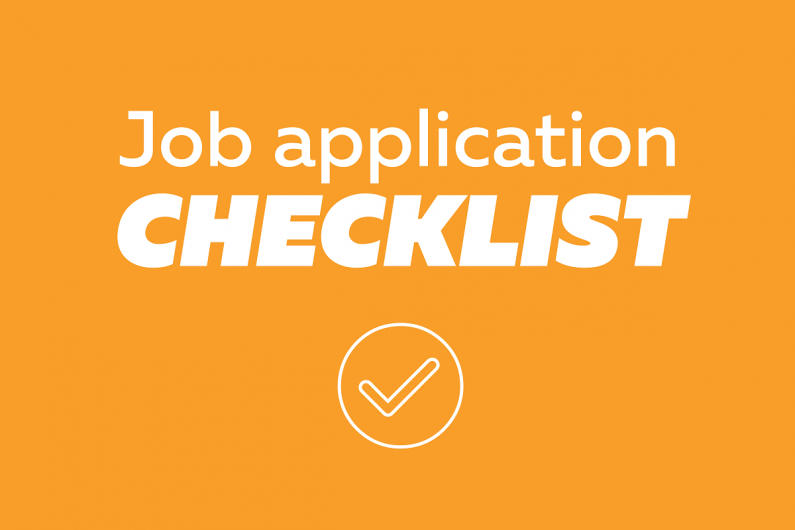Job application checklist

Use our checklist before you send in your job application.
What's on this page?
Get your job application through application software
Recruitment agencies and many employers use software (Applicant Tracking Systems) to screen job applications. This software looks for specific keywords from the job advert in your CV and cover letter. It rejects applications that don't contain these keywords.
Check your CV has keywords from the job advert
Check your CV and cover letter has the job advert keywords. Keywords may include:
- job titles and similar job titles
- job tasks and skills
- systems or software used in the role.
Examples:
- If the job advert says, 'good customer service skills', use that wording.
- If the job advert names a particular software programme, use that programme's name.
Check your CV and cover letter have a plain format
Your CV and cover letter need to be in Word. The format needs to be plain or the software may not be able to scan or open the document.
Use:
- plenty of white space
- a readable text font, such as Calibri, Georgia, Helvetica, Arial or Times New Roman
- bullet points to list your skills.
Don't use:
- boxes, tables or shading
- images
- important information in headers or footers (software may skip this)
- abbreviations (software can't understand this)
- formatting such as bold, italic or underline.
10 steps before you send your job application
Follow this checklist to make sure your job application is the best it can be.
- Check CV and cover letter - have someone check your format, spelling and grammar.
- Check application form - have someone check your spelling and grammar and that all boxes are filled in.
- Label CV and cover letter - label CV and cover letter with the job title, your name and job application date.
- Email from your job hunting email - create a job hunting email address and send your application from this address.
- Make a clear email subject line - include the job title, job reference number and your name in the email subject line.
- Put cover letter into message box of email - copy the cover letter and put it into the message box of the email.
- Attach documents - attach Word copies of your CV, cover letter and any other documents requested (recruitment software can't scan PDFs).
- Request receipt - go into the options tab of your email and select 'request a delivery receipt' and 'request a read receipt' to check your email got through.
- Check sent box - check your sent box to make sure your email got sent.
- Note application sent details - note the job, job contact details and date you sent the application, in case someone contacts you.
Find out more
Keep track of your job applications
It's a good idea to keep a record of the jobs you apply for.
This is particularly important when you're applying for more than one job at a time, so you can see where each application is up to.
You could use a spreadsheet, a Word document, or just a written list, depending on what you're comfortable with.
Essential things to record are:
- job title, name of employer, and contact details - phone and email address
- if you've heard back from the employer
- interview date.
Other things you could record are:
- where you heard about the job
- the date you applied for the job and how you sent the application (eg, email or through an online system)
- information about the job - job description and advertisement.
It's also worth keeping a copy of what you said in your application.
If you accept a job, it's a good idea to contact the other employers you applied to and let them know you're withdrawing your application.
Updated 8 May 2023